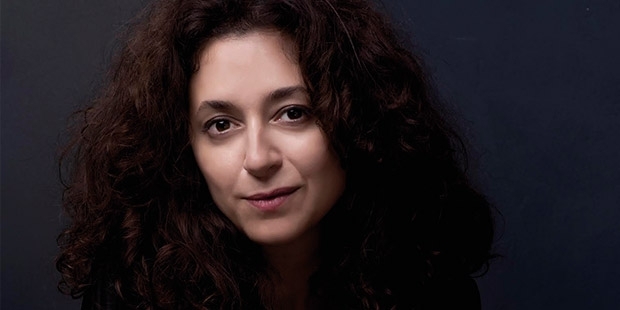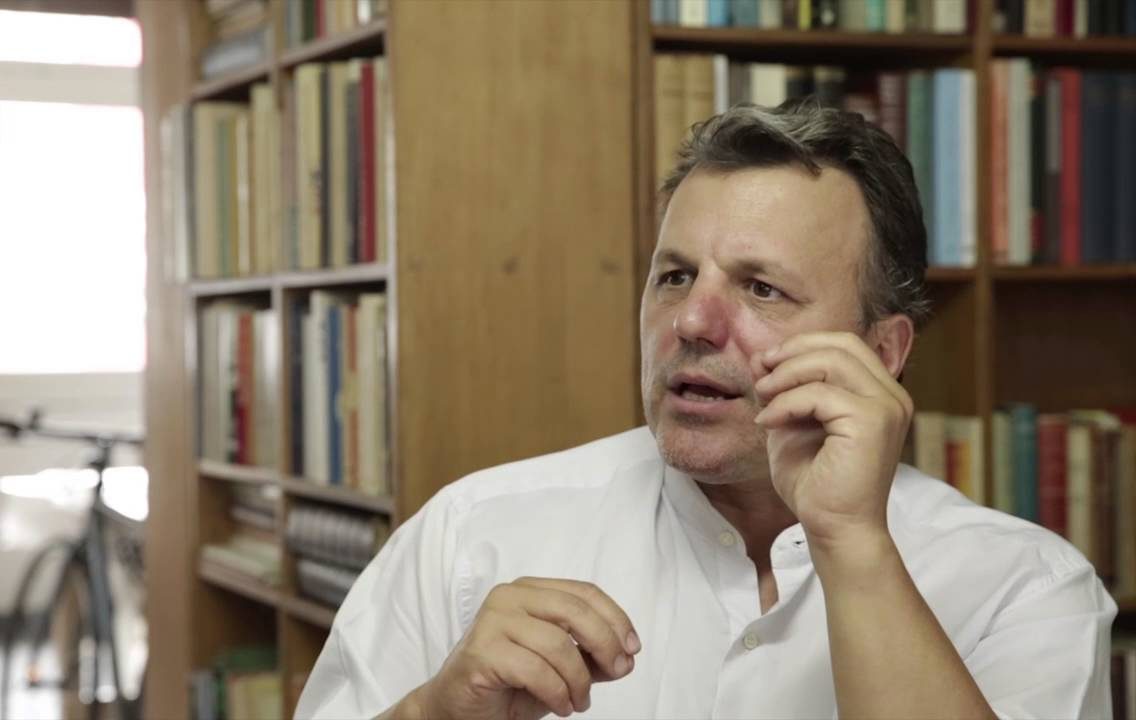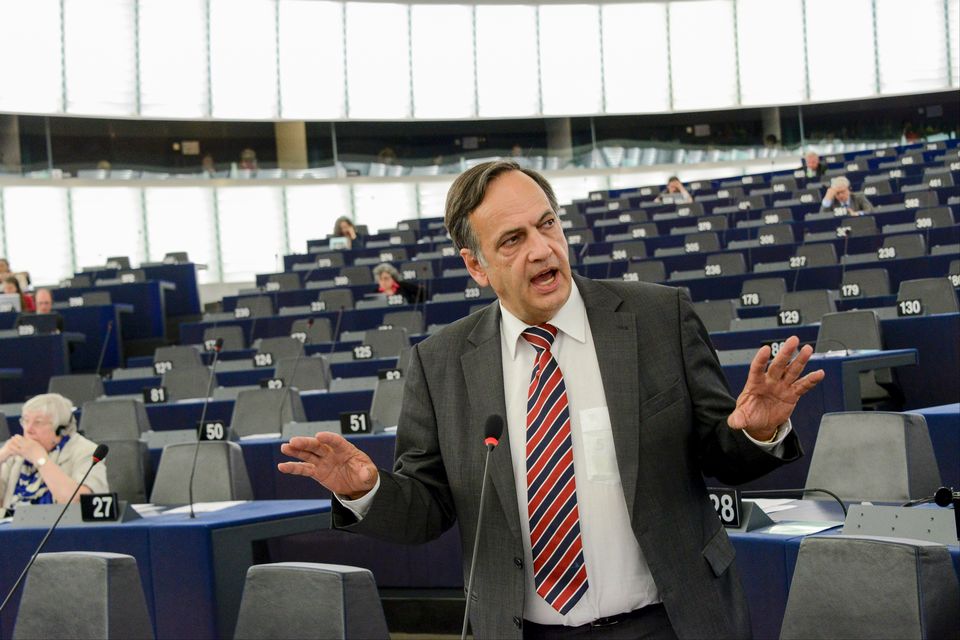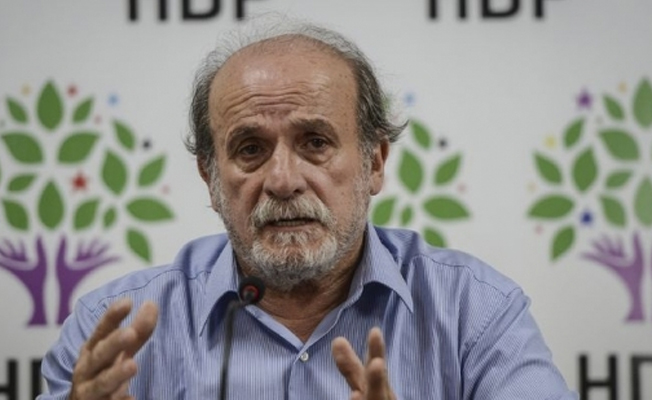Ece Temelkuran is a Turkish journalist and author. She was fired from Habertürk after writing articles critical of the government, especially its handling of the December 2011 Uludere massacre. She was twice named Turkey’s “most read political columnist”. Her columns have also been published in international media such as The Guardian and Le Monde Diplomatique.
She has published 12 books, including five published in English ; How to Lose a Country, Deep Mountain, Women who blow on knots, Book of the Edge, Turkey: Insane and Melancholy
In 2008 she was a visiting fellow at the Reuters Institute for the Study of Journalism, during which time she wrote Deep Mountain, Across the Turkish-Armenian Divide. Her books include Ne Anlatayım Ben Sana! on hunger strikes by Turkish political prisoners. She was awarded the Human Rights Association of Turkey’s Ayşe Zarakolu Freedom of Thought Award in 2008.
She published her last book In 2019, a nonfiction one, How to Lose a Country: The 7 Steps from Democracy to Dictatorship, about the rise of right-wing populism and how it operates.
José Miguel Rocha at PPJ interviewed her.
Eric Edelman, who was US ambassador to Turkey, once said that “every time it seems things can’t get worse in Turkey, I always say, just wait”. Does this also define your perspective on the country?
I can tell you the opposite as well. When I was a young journalist — I think I was 19 —, there was this prominent statesman: a right-wing politician, head of the Parliament. He was a seasoned politician and, probably, I was very concerned while asking something about Turkish politics. I never forget his answer. He said, “Young lady, there is a security valve somewhere in this country and it always works when things are about to explode, but don’t ask me where that security valve is”. I firmly believed in this until recently. Now I do not know, it is not easy to be hopeful for Turkey. But we always have the moral responsibility to be determined to change things, so I am trying to write hopeful things as well.
I know that you prefer the word “determination” to “hope”. Where do you see determination in Turkish society nowadays?
I see it everywhere. Recently, in my hometown, Izmir, there was an earthquake with a magnitude of 6.8, and there were not only painful but also disgusting things. We saw the representatives of governing parties trying to produce political propaganda from the pain of the affected people. There was one minister from the governing party (the AKP) who took the phone from a rescue worker while he was trying to reach a child under the wreck. This way you can see that politics has become quite inhumane in Turkey, especially on the part of the governing parties. Despite all these things, all the pain that the earthquake caused, people are, and were very determined to be, in solidarity.
Turkey is a very polarized country, and the opposite side in the political spectrum is no longer considered humane. That was crystallized when a prominent figure from the opposition tested positive for coronavirus and we could see all the government trolls cheering up and partying on social media. In such a polarized country, to keep the humane values is a form of resistance and you should be really determined to do that. That determination is the source of hope. I do not believe in stories of hope when there is no determination around.
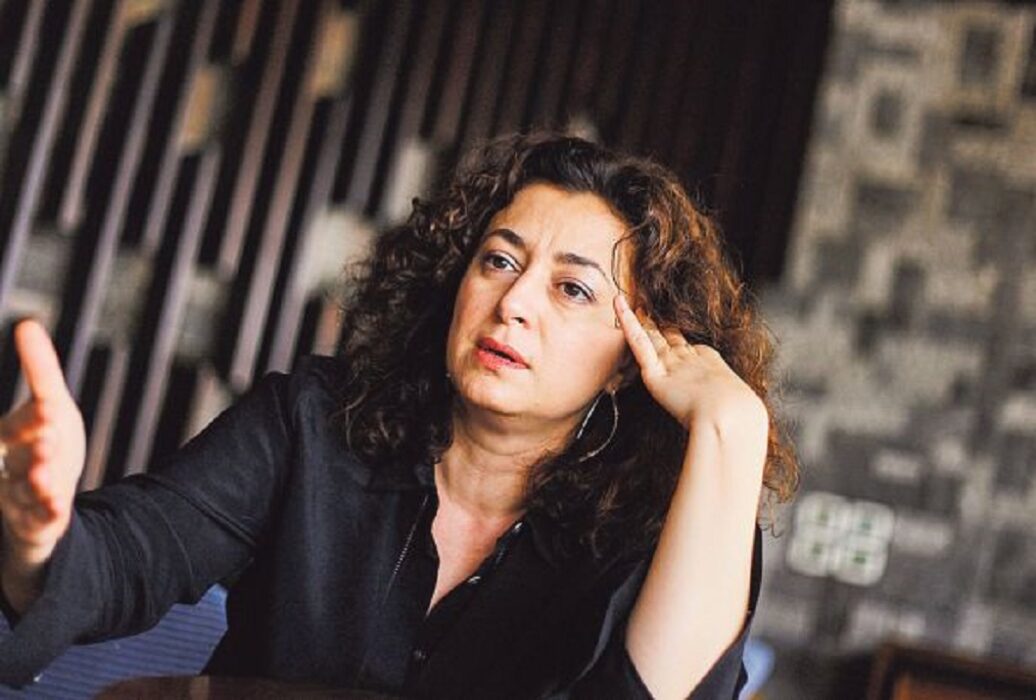
There was another thing touching many hearts in Turkey: when the earthquake happened, there was a resistance movement among the mine workers and they stopped their resistance and demonstrations to go to Izmir, where they worked days without sleeping. If there is a security valve somewhere in Turkey, probably it is this, those people who are very determined to keep themselves human.
For several times you have stated that Turkish politics is a “vicious cycle of vendettas”. Do you think that the AKP’s politics is all about taking revenge from the past — a past in which politicians like Recep Tayyip Erdoğan were arrested for reading a poem?
There is a very effective pseudo-political narrative: the past, the revenge of the past, or the vengeful emotions induced by the past oppression of the secular elite. But I think this is only a narrative that has kind of legitimized the AKP’s politics for quite a long time. It no longer does that. Right-wing populist leaders, like Erdoğan, have a magical ability to play the underdog while ruling. While they are the oppressor, they can also act like the oppressed. This dual role they play make things really hard.
Yet, this narrative does not hold anymore — people are making fun of it —, however it is still used. People, especially outside the country, thought this narrative had some ground because Turkey was a Muslim country but, according to the narrative, ruled by the oppressive secular elite. This was maybe the case, but there was no such thing as oppression of religious expression, especially after the 1980 military coup. That coup created a coalition — which, in my opinion, still rules the country — between two main powers: neo-liberalism and the religious sects. Leftists, progressives, and liberals (in the European sense) were the ones who were ousted from the system and repeatedly pushed out from the state apparatus and politics.
That narrative, for some reason, worked really well until some point, but it had no ground. Any country that is subjected to right-wing populism now knows very well that even though the narrative is false, fake, or manufactured, it can politically work, move mountains, create a reality in itself.
He is often credited with paving the way for religious people (especially those wearing hijab) to do some things, such as going to University, that they were not able to do before the AKP’s rule…
The hijab is a very complicated matter. To start with, Erdoğan did not pave the way, it was women — not only the Muslim but also the leftist women, together — who were struggling for that for years before Erdoğan. He does not own that political victory (if there is one there). Most of the politically active Muslim, or Islamist women who were in that struggle are not supporting the AKP anymore.
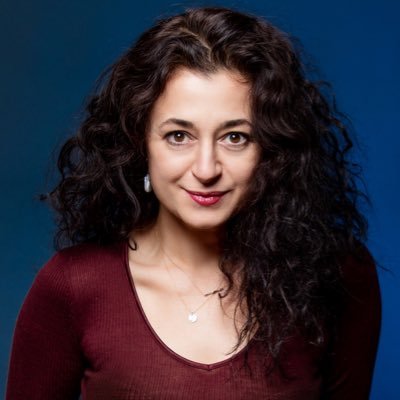
It is not about being religious or not. According to Erdoğan, the ideal citizen is the obedient one — you can wear a mini skirt, if you like. Let me make this clear: somehow, that narrative inseparably connects Erdoğan to the religious people, which is not correct at all.
The veil becoming the flag of political Islam is not something only about Turkey. Among all Muslim countries, Turkey became the hotspot of that discussion, for obvious reasons, but political Islam, as I see it, was a geopolitical tool against the former socialist block. It was a political project which people devoted themselves to, or sacrifice themselves for. I think each one of us needs to see our position in society and in history as the product of the time and the place. I am not sure that all the political Islamist women are aware of their utilization in this political narrative. Their being banned from universities was a huge mistake, obviously. Yet, secular systems in our times cannot find a political and philosophical response to religion and religious expression. It is not only Turkey: for example, France cannot find it either. Their response is also primitive and crude. Remember this policeman forcing a woman to strip her chador in the beach. I think that picture was the ultimate failure of secularism and its philosophical possibility to react to religious conservatism. Because the governments, and politics in general, cannot still decide what to do with religion. Is it supposed to be considered as freedom of expression or as a backward movement that attacks human and women rights?
This hesitation was certainly reflecting upon Turkey’s state ideology at the time. But now that disability to produce a political and philosophical answer to religious conservatism is replaced by the state apparatus being the guardian of religious conservatism and radical Islam. Turkey is now squeezed between these two things: our secularism, that cannot deal with the fact that there is a religious movement rising, and a state apparatus which is supported by and supporting religious conservatism. The former is represented by CHP and the latter, by the AKP.
This tension/contradiction cannot be resolved by men, but through women’s movements — yet, those women should not be the obedient women of the government. Therefore, I am refusing to see this antagonism as something between the CHP and AKP, but rather as a women’s issue — and should be handled accordingly.
One interesting development has been the CHP members who became mayors of several big cities. All these things, which are about high politics, will be maybe resolved, or softened, through local politics as well, as local politics is less about big ideas and more about daily life. Daily life might be a way to look at these contradictions. At the end of the day, the biggest problems in daily life are poverty, violence against women, and the justice system.
In July, you wrote that in Turkey “municipalities and mayors are preserving democratic values”. A bizarre thing happened some months ago, when opposition-run municipalities organized a successful fundraising campaign, but the government declared it was illegal — and decided to launch a “rival” one.
It is tragically funny because they are trying to stop municipalities from working. Few days ago, Mr. Erdoğan was in Izmir and made a statement saying something like, “We are taking care of the situation and there is this mayor who is joining the work as well”. On several levels, the AKP, like any other right-wing populist movement, is meddling with the truth, with the facts. Their main job is to manipulate, hide, conceal, and fabricate the facts, or to think about how they can benefit from them. Instead of running a country, I think they are mostly in the business of creating a narrative, but the gap between the narrative and reality is now so wide that even their supporters cannot be enthusiastic about supporting the narrative. Because it is almost mocking with the people’s IQ. So, their job is to constantly try to run and rule a narrative, but it does not work anymore. I think we are in the phase where the ordinary people decided to wait.
In 2017, Erdoğan complained that “politically ruling is one thing. Socially and culturally ruling is another thing entirely. We have been in power for 14 years but we still have problems with ruling in the social and cultural field,” adding that “in many places — from the media to the cinema, from science to technology and law — there are still people with minds that are foreign to the nation in the most effective places”. As a “mind foreign to the nation”, do you feel that he and his party have already achieved that social and cultural dominance?
I do not know what is expected more but I feel that there is now an Erdogan generation which would not understand, at all, what I am talking about. The last 20 years they have been fed with these narratives about history, about what is going on in the world today, science, what a nation is… I am not sure we have the same common code to manage a proper communication if we want to talk about serious matters.
Under that code, “nation” is a little bit slippery. Probably he said “millet”. And “millet” is also “people”. This is his definition of “people”. To start with, it seems, according to this quote, that “people” is something to be shaped and something that, he thinks, appropriate. And there are those, in that “millet”, that are inappropriate. That is fascism one-o’-one. It is my pride not to fit his definition of people, but this is not new, it has been going on since 2007. I remember that, in the election night, he said something like, “All those who did not vote for us are the other colors of this country”, as if people like me are something to be tolerated, disposables.
Do you think it is possible to create some bridges with the AKP supporters?
One thing we should do, as the disposables for the fascism, is to understand ourselves first. We saw everywhere (in the US, UK, Turkey, Russia, India, etc.) that, when these guys showed up on political stage, our consensuses were not strong enough to protect democracy, the country, the people. We should be talking within ourselves, to start with, and we should be in solidarity, globally. This is the whole point of hope.
It is easy-peasy to find a way to talk to the AKP supporters. The problem is that what we are here talking is not about the AKP supporters, it is about those people who are religiously devoted to the Erdoğan persona. I think we can no longer speak of AKP supporters in that sense, because they have been split: there is Ahmet Davutoğlu, Ali Babacan… They are building different parties and some of the AKP supporters are now supporting them, the IYI Party, etc.
Erdoğan consolidated his personal power, like Putin did, through the power and financial webs he created. His personal political existence is crucial to hundreds of thousands, maybe millions, of people in Turkey. I do not think that kind of structure can be called AK Party anymore, it is no longer a political party, but rather a one-man dominated web of power. Building a bridge with the AKP supporters or former supporters is easy.
To me it is a mystery how someone, in the political arena, can unconditionally support Erdoğan. If one sees what happened, for instance, to Ahmet Davutoğlu, Ali Babacan, or Abdullah Gul, it is easy to realize that every time someone gets close to him it is just a matter of time for that person to be pushed off the political scene and be considered a traitor, a “persona non grata”…
Probably they think they are smarter than those names you counted, which they are not.
Have you ever though about “how to (re)gain a country”?
Yes, I wrote a book about it, it is coming out next May. It is called “Together: 10 choices for a better now”. It is a more hopeful book. With “How to Lose a Country” I felt like a Casandra, going around and telling all the horrible things. Now I am going to be like Mary Poppins [laughs], coming with a curing remedy, hopefully. I was more or less showing the direction in “How to Lose a Country”, which is, definitely, global solidarity.
It does not matter if they are losing now and then, but right-wing populist leaders are collaborating, they are in close relationship all over the globe. We, as the people of the world — as the progressive, as the normal people in the world —, have to unite as well. In the new book I try to bring 10 changes that might create a better world, better politics.
In an interview, Fatoş Karahasan, who wrote a book on Turkish youth, revealed that some 84 percent said they were not interested in politics and that “they will rather vote according to their parents’ political views”, “repeat[ing] whatever” they say. Do you believe this is an accurate portrait? What can we expect from Turkish youth?
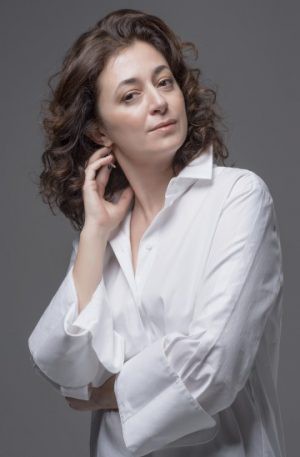
To start with, I want to quote Kenan Evren, the top general of the 1980 military coup. He once made a speech, during the coup, in which he said, “We are going to create a youth without ideology”. I think the survey you are talking about one is of the good proofs that shows us that the AKP is the descendent of the military coup. Twenty years back, the youth was not like this at all. Now, they are shaped according to the desires of a military coup, thanks to this government. If you are 20, what you understand from politics is Recep Tayyip Erdoğan — and maybe Kılıçdaroğlu (the leader of the CHP) — and that is it. There is not politics.
What cracked the wall of political ignorance, or political environment, was Gezi uprising. Maybe if that survey was done in 2013, during the Gezi uprising, the outcome would have been different, because politics was suddenly something different, something you do with your body, a joyful thing, about being more human. It was something hopeful, as well. Today, I feel pain when I think of young people, as they have no prospect at this point. Neither economically, nor socially. Maybe we should watch out for them, maybe they do something completely unexpected. When it comes to that kind of things, Turkey is quite unpredictable.
In your books, there is a huge nostalgia for Gezi protests…
Well, I would not call it nostalgia. Many writers and many thinkers were so afraid of being nostalgic that they did not really talk about it as much as that incident required. I think that was a very, very important thing in the political history of Turkey. Without the fear of being nostalgic about it, or romanticizing about that, we should go back to that point and remember that we did it, that there was such a thing in Turkey. Not only should we remember, but we should also remind the political power that it might happen again.
Do you think that a huge social movement like Gezi or the so-called “The Republic Protests”, in 2007, can happen again? Sometimes it seems that, when it comes to massive protests, Turkish society has been sleeping…
They are sort of waiting. Turkey is a very old land, it has seen a lot. What is experienced in a land, I believe, is transmitted through generations. This is a land where many powers have passed and then they were gone. There is this deep knowledge, in Turkish psyche, that this will be over as well. I think that is what they are waiting. Also, Gezi showed people that if they take this one step further, there would be a massacre, so they took a step back and said, “We are waiting, we will not be part of the massacre, we are not sacrificing ourselves, we are not going to be the victims of this power”. Which I understand.
New (strict) regulations on social media came into effect some weeks ago. “The Economist” called Erdoğan the “sultan of censorship”. In your opinion, what are the major effects this law has had (and will have) in a country where, according to some estimates, more than 90% of the media outlets is under control of people close to the president?
Probably Mr. Erdoğan meant this when he said that they cannot rule in social and cultural arena yet. He wants to rule in cultural and social life, too. One of the ways, the most efficient one, is to control social media: the only place where people can, a little bit, express themselves. By the way, it does not go unpunished when you express views on social media, people are arrested because of that. It seems, though, the only way to be heard and now it is controlled as well.
There are so many people being oppressed like there is no tomorrow, but there is a tomorrow, there is always a tomorrow.
- [INTERVIEW] Ece Temelkuran: While they are the oppressor, they can also act like the oppressed. This narrative does not hold anymore - 16/12/2020
- [Interview] Nurcan Baysal: When my hometown Sur -a historical place under UNESCO protection- was demolished, UNESCO said nothing. - 21/11/2020
- Nurcan Baysal: Saying “I demand peace”, is dangerous. - 20/11/2020
